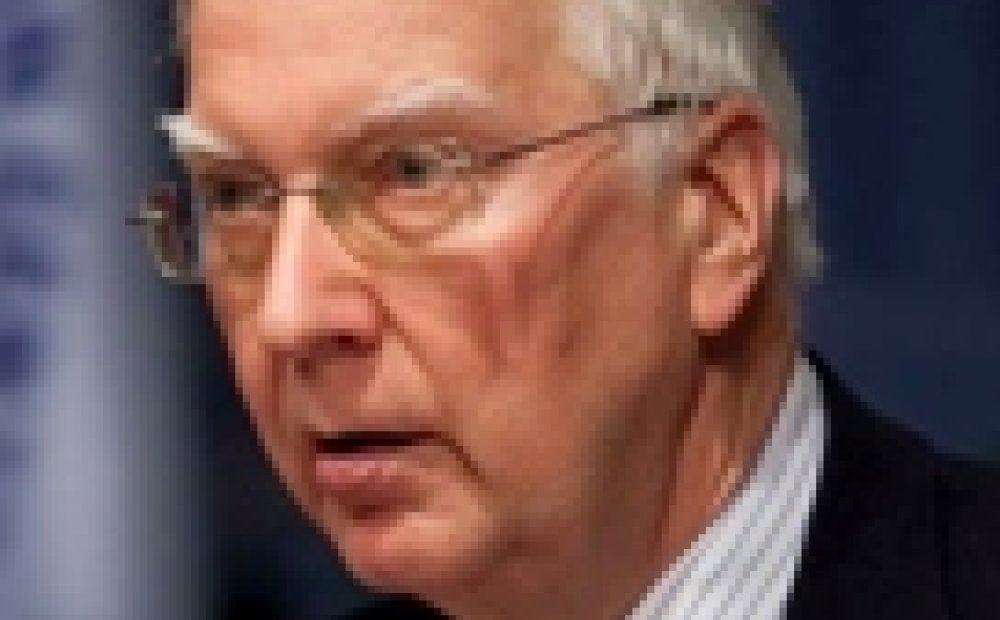The NATO-EU-Russia Triangle: Different Perceptions and Approaches to International Security

"Most of my impressions of Russia from 1999-2003 are still true," said Franz Cede, former Ambassador of Austria to the Russian Federation, at a 12 April 2011 Kennan Institute event, "The NATO-EU-Russia Triangle: Different Perceptions and Approaches to International Security." In particular, the former ambassador singled out Russia–EU and Russia–NATO relations as examples of issues that have changed little since that time.
Ambassador Cede stressed that the European Union is just one—and perhaps not even the most important—political partner for Russia in the Western world. Speaking further on the character of Russian relations with the EU, Cede stressed that Moscow–Brussels relations could be described as "asymmetrical." By that, the ambassador meant that the EU creates a pole of attraction for Russia with its values and achievements (such as rule of law, good governance, and economic free markets). Mr. Cede ruled out Russia's possible membership in the EU, saying that Russia–EU Partnership and Cooperation Agreements concluded in 1994 will continue to form the legal framework of the EU–Russia relationship. During the discussion Mr. Cede criticized disunity of the Western European countries, especially with regard to its members varying policies toward Russia on issues such as energy security. Russia prefers to deal with EU member states on a bilateral basis.
At the same time—especially in the sphere of international security—Moscow views the U.S. as its principal point of reference. "In spite of Russia's diminished role after the collapse of the Soviet Empire the Russian elite still likes to put Russia on the same footing as the U.S.," Cede stated. "All my conversations and discussions during my stay in Moscow gave me the impression that, in the eyes of Russian officials, Russia remained a world power along with the U.S. Moscow considers Washington as the first address for a global partnership it does not see the EU in the same "league of international actors."
Meanwhile, NATO's existence, especially its enlargement to the East, is viewed by the Kremlin with suspicion and mistrust. Moscow believes that the alliance challenges Russia's interests in the post Soviet space, where Moscow "claims to have legitimate interests," Cede noted.
To conclude his presentation, Ambassador Cede gave his suggestions for a sound policy by the West toward Russia. First, he pointed out the necessity for the EU to develop a unified and coherent policy on Russia. Such an approach, he said, does not yet exist. This lack of clarity means that the European countries usually settle on the "lowest common denominator" when it comes to dealing with Russia on urgent security issues.
Second, Ambassador Cede called upon the European Union to define a long term vision for its relationship with the "bridge countries"—namely, Ukraine, Belarus and Moldova. "Russia will do everything to keep or re-establish its influence in these countries, while the EU will exert its power of attraction to draw them closer to the project of EU integration," he said. Cede also suggested that United States and EU better coordinate their policies towards Russia. In his opinion, there is no real coordination today between the two actors; rather, there is competition when it comes to defining policies toward Russia. "Even Obama's ‘reset policy' was not harmonized with the EU or NATO," Cede argued.
The ambassador's final suggestion was to create a "people-to-people" approach for relations between Russian and the EU, particularly in creating contacts between EU and Russian civil society partnerships at all levels. "I am convinced that exchange programs and direct contacts between the citizens of EU and Russia can do more for mutual relations than communiqués written by bureaucrats at EU–Russia summits," Cede concluded.
By Nataliya Jensen
Blair Ruble, Director, Kennan Institute
Speaker
Hosted By

Kennan Institute
After more than 50 years as a vital part of the Wilson Center legacy, the Kennan Institute has become an independent think tank. You can find the current website for the Kennan Institute at kennaninstitute.org. Please look for future announcements about partnership activities between the Wilson Center and the Kennan Institute at Wilson Center Press Room. The Kennan Institute is the premier US center for advanced research on Eurasia and the oldest and largest regional program at the Woodrow Wilson International Center for Scholars. The Kennan Institute is committed to improving American understanding of Russia, Ukraine, Central Asia, the South Caucasus, and the surrounding region through research and exchange. Read more
